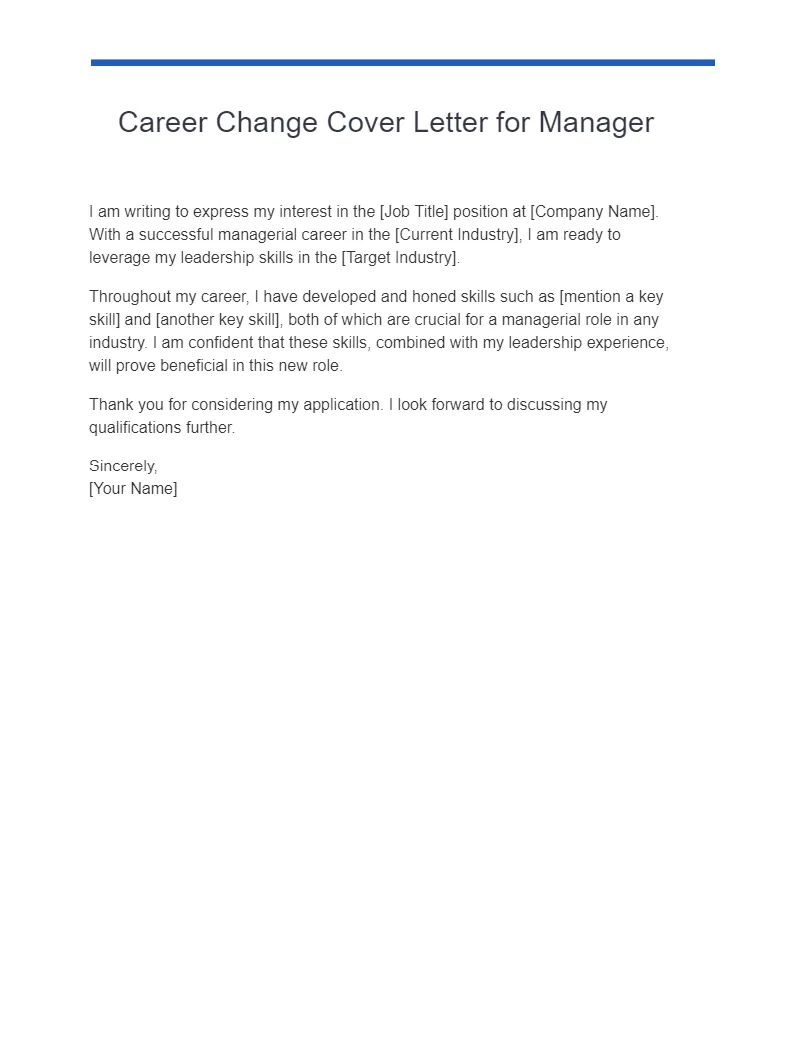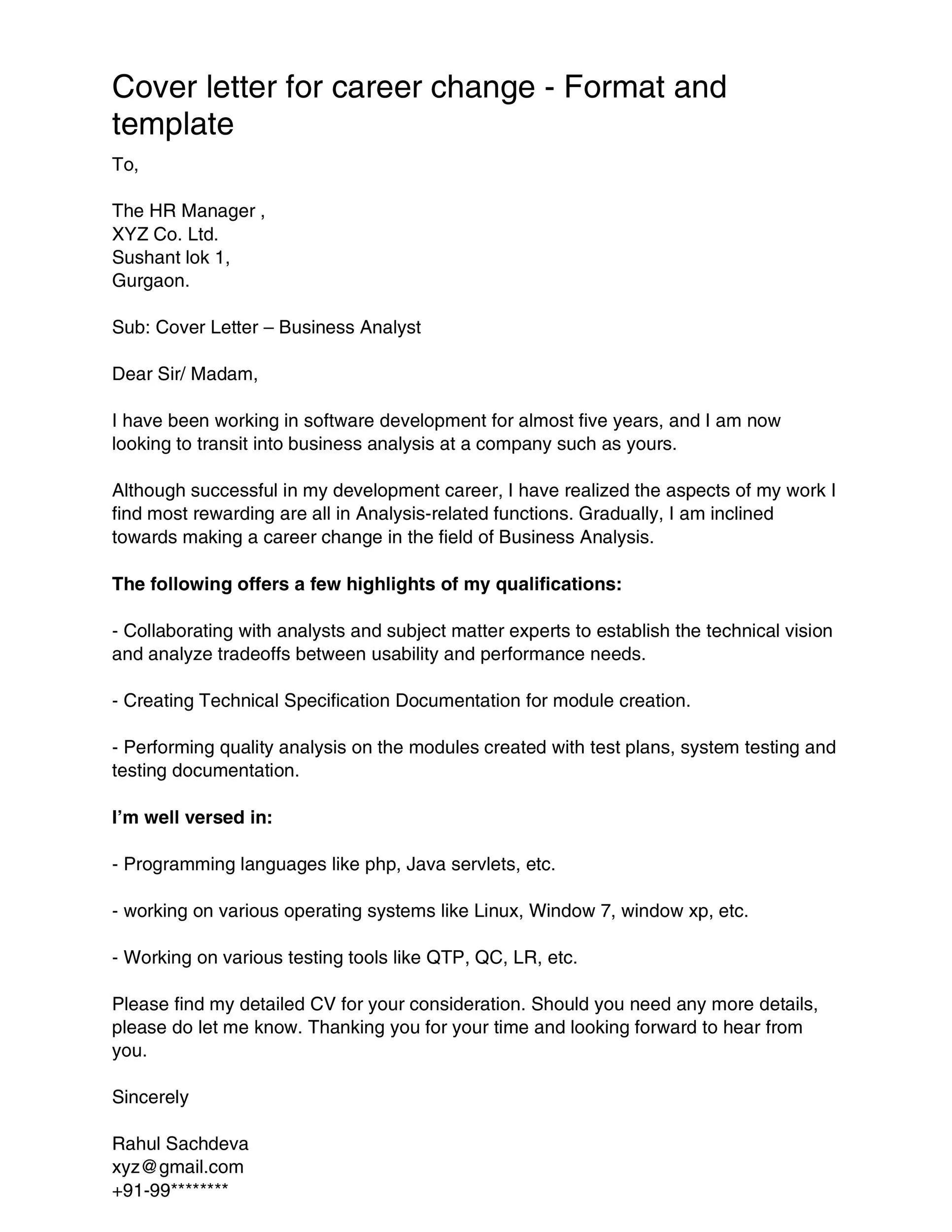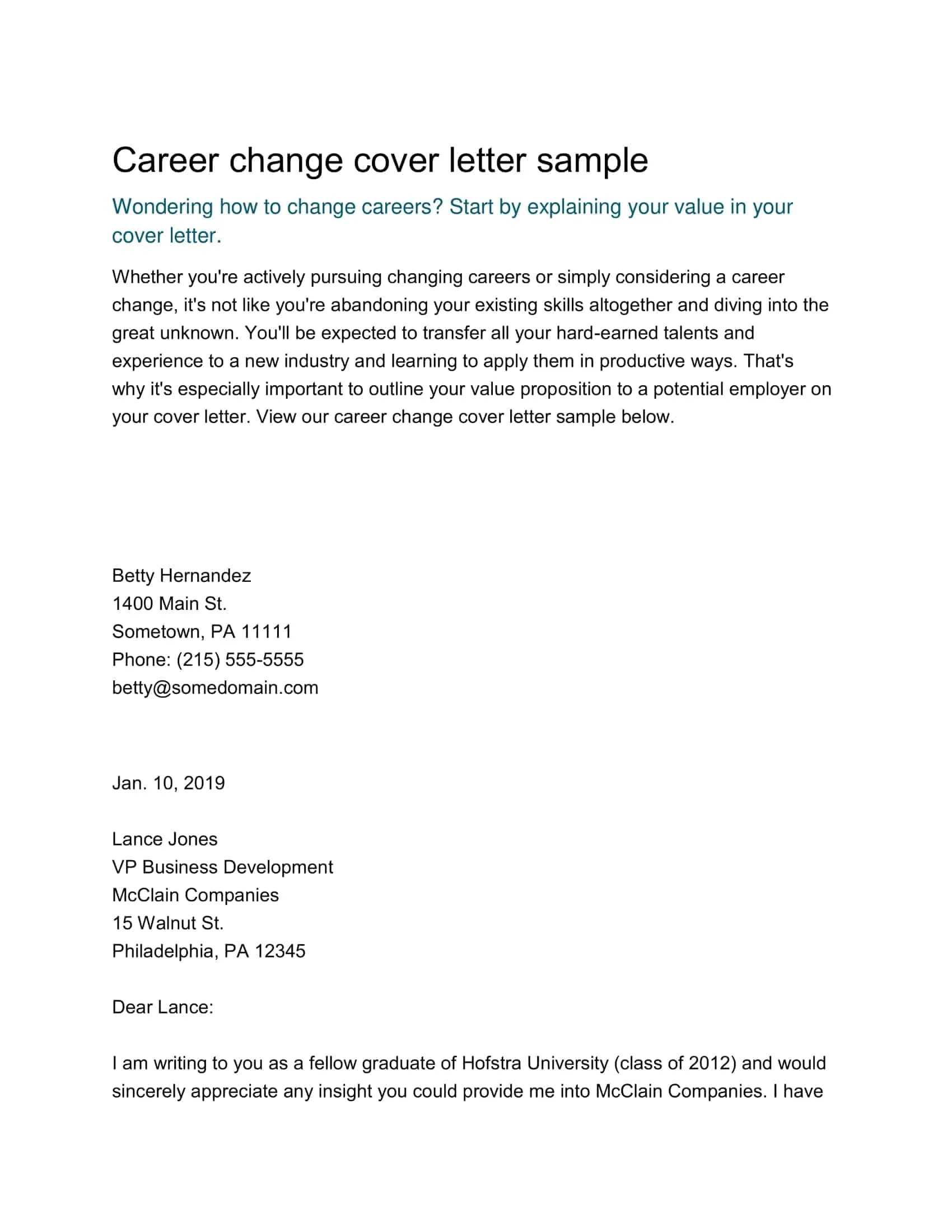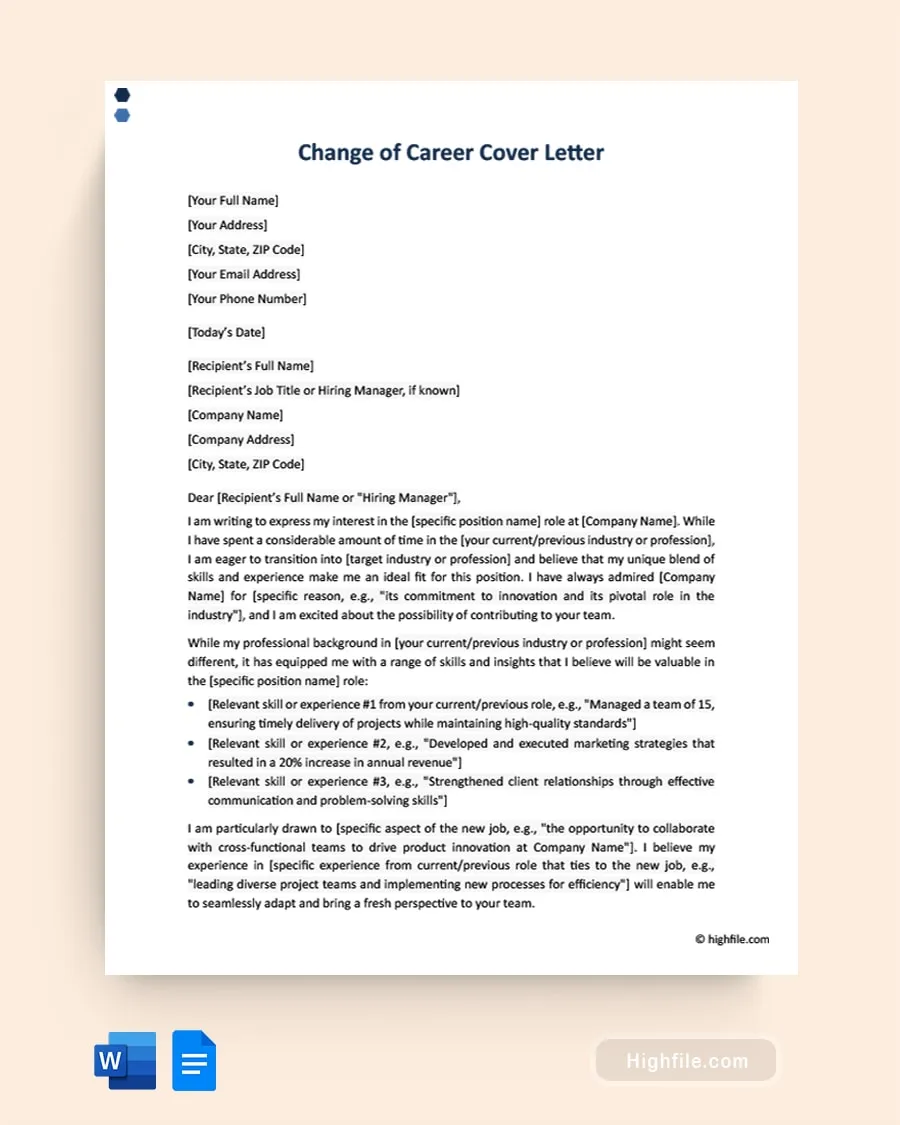The Importance of a Cover Letter
In the competitive job market, a cover letter is your first opportunity to make a strong impression on potential employers. It’s a crucial document that complements your resume by providing a personal introduction and highlighting how your skills and experience align with the job requirements. A well-crafted cover letter goes beyond simply listing your qualifications; it tells a story, showcases your enthusiasm, and demonstrates your understanding of the company and the specific role. Ignoring a cover letter means you are missing a golden opportunity to distinguish yourself from other applicants, and it can be a major red flag for recruiters. Therefore, investing time and effort into creating a compelling cover letter is essential for increasing your chances of landing an interview and ultimately securing your dream job. Your cover letter is your chance to leave a lasting impression before you even get a chance to speak with a hiring manager.
Highlighting Your Skills and Experience
Your cover letter should be a concise and impactful summary of your key skills and experiences. Focus on the most relevant qualifications that align with the job description, demonstrating how you can contribute to the company’s success. When highlighting your skills, provide specific examples of how you’ve used them in previous roles. Use action verbs to describe your accomplishments and quantify your achievements whenever possible. For instance, instead of simply stating that you have experience with project management, you might say, “Managed cross-functional project teams, delivering projects on time and within budget, resulting in a 15% increase in efficiency.” This level of detail not only showcases your abilities but also provides tangible evidence of your value to a potential employer. Remember to tailor your descriptions to fit the specific requirements outlined in the job posting, making it clear why you are a strong fit for this particular opportunity. Make sure to use some keywords from the job description to pass through the Applicant Tracking System (ATS).
Tailoring Your Cover Letter to Each Job

One of the most common mistakes job seekers make is using a generic cover letter for all applications. Each job application deserves a unique cover letter, tailored to the specific requirements and culture of the company. This personalization shows employers that you’ve taken the time to understand their needs and are genuinely interested in the opportunity. Demonstrating a lack of personalization can immediately result in your application being rejected, and it is always in your best interest to give the hiring manager the best impression you can make. Customization is key, and is a critical step when preparing for your job search.
Researching the Company
Before you start writing, conduct thorough research about the company. Understand their mission, values, recent projects, and any current challenges they face. Use this information to personalize your cover letter, demonstrating how your skills and experience align with their specific needs. This research can be done by checking the company website, social media profiles, and industry news. You can also use sites like LinkedIn to find information on the hiring manager to get a better understanding of their values and the company’s needs. Showing that you know the company and what it does will instantly increase your chances of getting hired.
Using Keywords Effectively
Carefully review the job description and identify the key skills, qualifications, and keywords. Incorporate these keywords naturally throughout your cover letter. This will not only help you pass through Applicant Tracking Systems (ATS) but also highlight your suitability for the role. Avoid keyword stuffing; instead, weave the keywords into your sentences to demonstrate your understanding of the requirements. The goal is to write a cover letter that flows, but also provides a great SEO strategy to get through an ATS. It’s a balancing act to get right, but the effort is well worth it in the long run. Recruiters use ATS systems, so the usage of keywords is important.
Showcasing Your Personality

While professionalism is essential, don’t be afraid to let your personality shine through. Your cover letter should reflect your unique voice and perspective. Use a confident and enthusiastic tone to convey your genuine interest in the opportunity. Showcasing your personality also means being authentic and genuine in your writing. This can involve sharing a brief anecdote, expressing your passion for the industry, or highlighting your unique strengths. Remember that the cover letter is your chance to show the hiring manager who you are and how you approach situations that are required for this specific job. Remember to maintain a professional tone to make sure you are not viewed negatively by the hiring team.
Writing a Compelling Opening
Your opening paragraph is your first and often only chance to grab the reader’s attention. Start with a strong hook that immediately captures the reader’s interest. You can express your enthusiasm for the position, mention how you learned about the opportunity, or briefly summarize why you’re a good fit. Make your opening concise, direct, and tailored to the specific job. The goal is to immediately establish your value and make the reader want to learn more. For example, instead of starting with a generic statement like, “I am writing to express my interest…”, try something more engaging like, “I was thrilled to see the opening for [Job Title] at [Company Name] because…” This approach immediately demonstrates your interest and shows that you have done your research. Your opening statement should be something the hiring manager will instantly know you are a good fit for the company.
Focusing on Achievements
Instead of simply listing your responsibilities, focus on your achievements and the results you’ve delivered in previous roles. Quantify your accomplishments whenever possible, using numbers, percentages, or specific metrics to demonstrate your impact. For instance, instead of saying “Managed social media accounts,” say “Increased social media engagement by 30% in six months.” This demonstrates to the hiring team what you have already accomplished in the past, and what you might be able to do for the future of the company. Highlighting your accomplishments will make your cover letter more compelling and make a stronger case for why you are a great fit for the role. By highlighting your achievements, you show the value you can bring to the organization.
Proofreading and Editing

Before submitting your cover letter, meticulously proofread and edit it for any grammatical errors, spelling mistakes, or typos. Errors can create a negative impression, suggesting a lack of attention to detail. Read your cover letter multiple times, and consider having a friend or colleague review it as well. Errors can be easily overlooked when you’ve been staring at the same document for hours. Ensure that your sentences are clear, concise, and well-structured. The cover letter should be free of jargon and easy to read and understand. The goal is to present your skills and experiences in a professional and polished manner, and a well-edited cover letter demonstrates your commitment to excellence.
Formatting Your Cover Letter
The format of your cover letter is an often-overlooked element, but it plays a crucial role in the overall impression you make. Keep the formatting clean and professional. Use a standard font, such as Arial or Times New Roman, and maintain a consistent font size throughout the document. Keep paragraphs concise and use bullet points to make your content easy to scan. A well-formatted cover letter is easy to read and demonstrates your attention to detail. The goal is to format a cover letter that is easily read by the recruiter, and is something that they can quickly grasp the idea of your qualifications and skills. The visual presentation should be neat and professional. Ensure there’s adequate white space to make the document visually appealing and easy to read.
The Closing Paragraph
Your closing paragraph should summarize your key qualifications and reiterate your interest in the role. Thank the hiring manager for their time and consideration, and express your eagerness for an interview. Provide your contact information, including your phone number and email address, making it easy for the recruiter to reach you. Reiterate your enthusiasm, and close with a call to action, such as stating your availability for an interview. The goal of the closing paragraph is to leave a lasting positive impression and encourage the hiring manager to take the next step in the hiring process.
